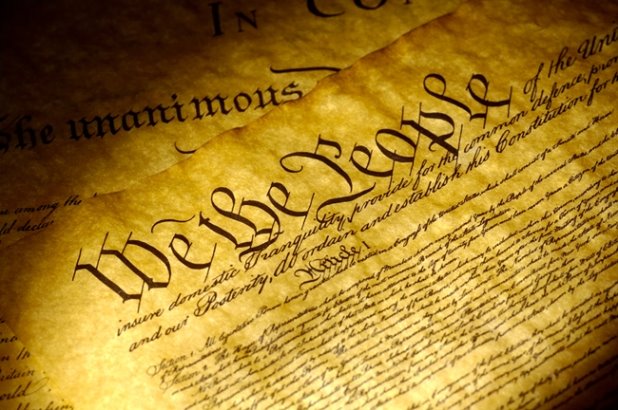Senator Elizabeth Warren has joined a growing chorus within the Democratic party in calling for the abolition of the Electoral College. Speaking at a forum in Mississippi on Monday night, Warren said that she hoped to ensure that “every vote matters” and proposed that “the way we can make that happen is that we can have national voting, and that means get rid of the Electoral College.”
Warren’s lofty rhetoric notwithstanding, a large portion of the Democratic party’s present animosity toward the Electoral College is rooted in rank partisanship. Since they watched their supposed “blue wall” evaporate in the small hours of the 2016 presidential election, many Democrats have felt sufficient anger with the system to seek to remake it. This habit has by no means been limited to the Electoral College. Indeed, no sooner has the Democratic party lost control of an institution that it had assumed it would retain in perpetuity than that institution has been denounced as retrograde and unfair. In the past year alone, this impulse has led to calls for the abolition or reinvention of the Senate, the Supreme Court, and more.
Insofar as there does exist a serious argument against the Electoral College, it is increasingly indistinguishable from the broader argument against the role that the states play within the American constitutional order, and thus from the argument against federalism itself. President Reagan liked to remind Americans that, far from serving as regional administrative areas of the nation-state, the states are the essential building blocks of America’s political, legal, and civic life.
In our era of viciously divisive politics, the states are arguably more necessary than they have ever been. Critics of the Electoral College bristle at the insistence that it prevents New York and California from imposing their will on the rest of the country. But the Electoral College guarantees that candidates who seek the only nationally elected office in America must attempt to appeal to as broad a geographic constituency as possible — large states and small, populous and rural — rather than retreating to their preferred pockets and running up the score. The alternative to this arrangement is not less political contention or a reduction in anger; it is more of both.
In addition to protecting the political diversity for which the United States is famous, the Electoral College brings with it a number of practical advantages that are crucial to good government. Under the current system, the result of presidential elections tends to be clear almost immediately — there is no need, for example, to wait three weeks for California to process its ballots; it is nigh-on impossible for voters to return a tie or disputed outcome; and, because presidential elections are, in effect, fifty-one separate elections, accusations of voting fraud and abuse hold less purchase than they would if all franchisees were melted into a single, homogenous blob. The freak occurrence that was Bush v. Gore is often raised as an objection against the status quo. Less attention is paid to the obvious question: What if that recount had been national?
Impressively, Elizabeth Warren’s plan for straight abolition is not the worst reform being touted at the moment. Impatient at the lack of progress that the #Resistance has made in pulling the wiring out of America’s constitutional engine, a handful of states have adopted the “National Popular Vote” plan, which binds their electors to cast their ballots for the candidate who wins a majority of votes nationwide. Until enough states have signed on to tip the balance past 270 — and, indeed, until the inevitable litigation has been concluded — adoption of the NPV will remain purely symbolic. Should it be put into action, however, it would achieve the remarkable feat of removing all of the benefits that the Electoral College provides while preventing the electors of each state from voting for the presidential candidate whom a majority in that state had picked. Who knew that the outsourcing craze would extend to democracy?
The U.S. Constitution is a complex document that, as Whitman might have put it, contains multitudes. At once, it boasts guarantees of democracy and protections against it; hosts an outline for national action, and a blueprint for localism; and serves as a vehicle for the majority, while including guarantees that the most significant decisions must be broadly agreed upon. The Electoral College is one of the many finely tuned institutions within the charter that have ensured stability and continuity in America for more than two centuries. To destroy it in a hail of platitudes, civic ignorance, and old-fashioned political pique would be a disastrous mistake.
